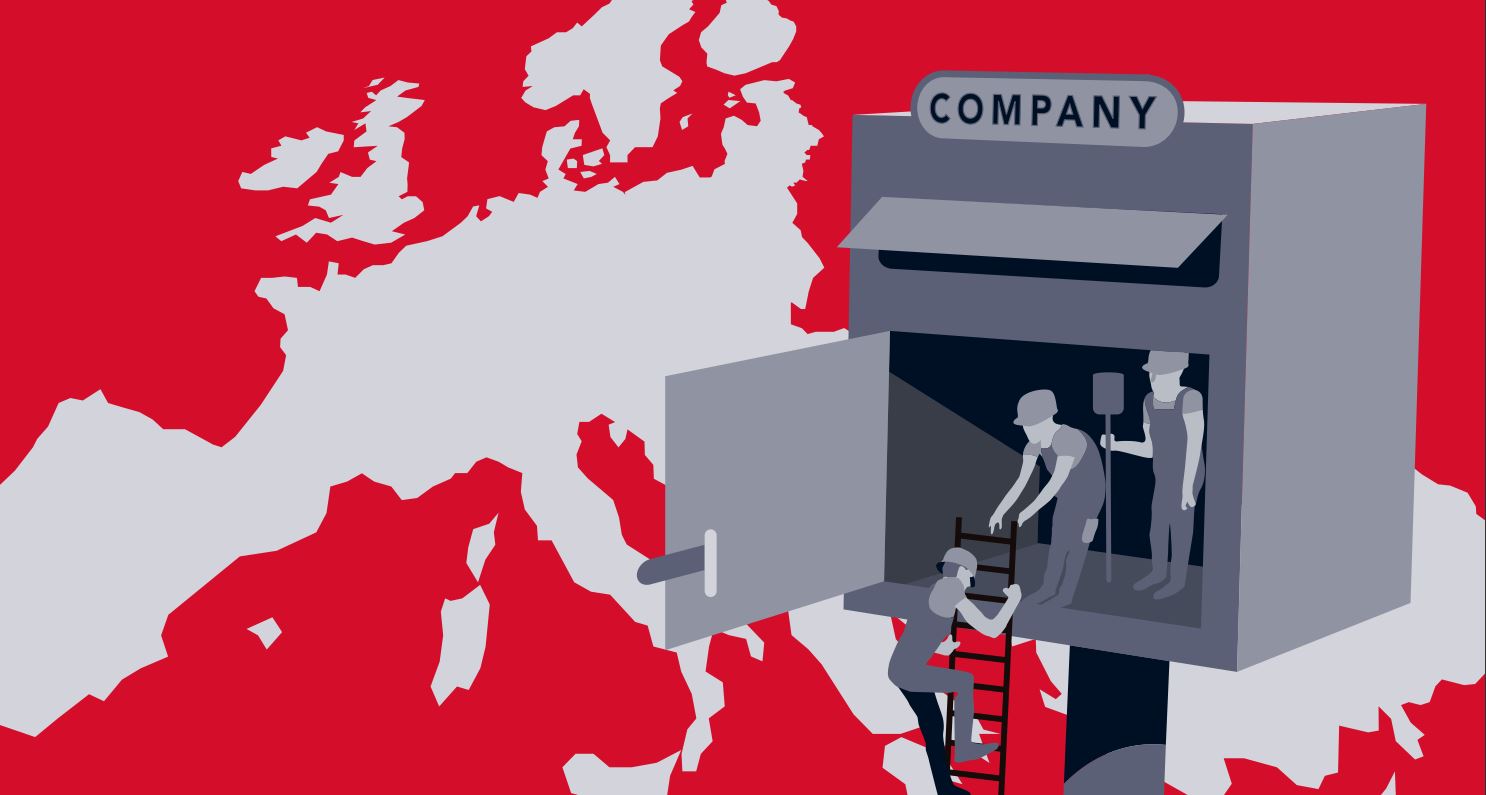
The impact of letterbox-type practices on labour rights and public revenue
Four case studies
This report, commissioned by the European Trade Union Confederation (ETUC), shows how businesses use ‘letterbox practices’* not only to pay lower taxes, but also to pay lower wages and circumvent labour laws and collective agreements, leading to bad working conditions.
The report, which was published in July 2016 and updated in October 2016**, features case studies from Germany, the Netherlands, Italy and Sweden, covering the meat, road transport, car manufacturing and construction sectors.
The cases include:
- Danish Crown, a Danish meat company that owns slaughtering and meat processing factories in Germany, which subcontract workers on the site from letterbox companies in Poland, Hungary and Romania. Workers have 14-20 hour working days and no pension and health insurance payments, are not employed by the same ‘subcontractor’ for more than 6 months, have contracts passed from one letterbox company to another.
- Vos Transport, a Dutch road transport company, earns 70% of its revenue from Dutch activities, but 50% of journeys are carried out under contract by letterbox-type companies in Romania and Lithuania. Eastern European drivers working under contract with these companies, had their contracts signed by a Dutch manager, received instructions from the Netherlands and were obliged to open a Dutch bank account. Wages amounted to €200 a month with the rest made up of expense payments and bonuses.
- The Polish subcontracting firm Pilgrim allegedly avoided social security contributions in Sweden for four years through posting arrangements, despite these being deducted from the workers’ salaries. The subcontractor shares an office and telephone with the Polish-Swedish Chamber of Commerce and has no discernable activities in Poland. It subcontracted its workers to the Swedish construction company Serneke, which allegedly sacked its Swedish workers before subcontracting workers from Pilgrim.
- The FCA Group (formerly Fiat), owned by an Italian family, is registered in Amsterdam and headquartered in London to make use of legal and fiscal advantages in these jurisdictions. The European Commission recently ruled that Luxembourg granted illegal state aid to the company in form of a selective tax advantage resulting from a tax ruling. The case shows how corporations can legally engage in regime shopping for financial advantages.
The report also reveals that 83% of foreign direct investment in the Netherlands, and 96% in Luxembourg, are into Special Purpose Entities (letterbox companies), which are typically used for international tax planning: so the vast majority of foreign investment in those countries is related to reducing tax payments in countries of operation.
The report is part of a long-term research project of the ETUC examining solutions to this avoidance of taxes, wages and social security payments.
*For the purpose of this report, the term “letterbox companies” shall be considered as not only including legal entities without any material substance, but also companies with potentially artificial incorporations where, for instance, it is questionable whether management or financial decisions are made at the place of incorporation, whilst the legal entity enjoys material benefits from the incorporation.
** Further to specific developments in the case of Vos Transport in the period between the end of SOMO’s research and the publication of the report, SOMO has included an annex to the report, providing an update including a recent case ruling, reference to the Dutch Labour Inspection report and a reply by Vos Transport to the case study presented in the report.
Partners
Publication
-
Download: The impact of letterbox-type practices on labour rights and public revenue + Annex (pdf, 1.76 MB)
Related news
-
The Netherlands – still a tax haven Published on:
 Arnold MerkiesPosted in category:Publication
Arnold MerkiesPosted in category:Publication Arnold Merkies
Arnold Merkies
-
 Tax avoidance in Mozambique’s extractive industriesPosted in category:Long read
Tax avoidance in Mozambique’s extractive industriesPosted in category:Long read Vincent KiezebrinkPublished on:
Vincent KiezebrinkPublished on: -
The treaty trap: The miners Published on:
 Vincent KiezebrinkPosted in category:Publication
Vincent KiezebrinkPosted in category:Publication Vincent Kiezebrink
Vincent Kiezebrink


